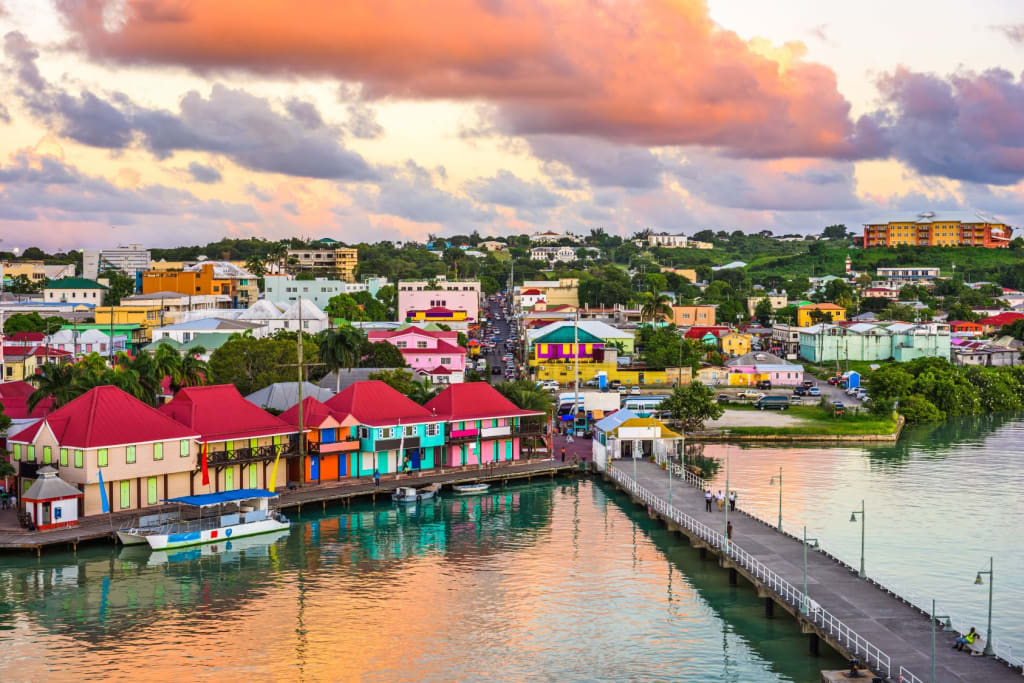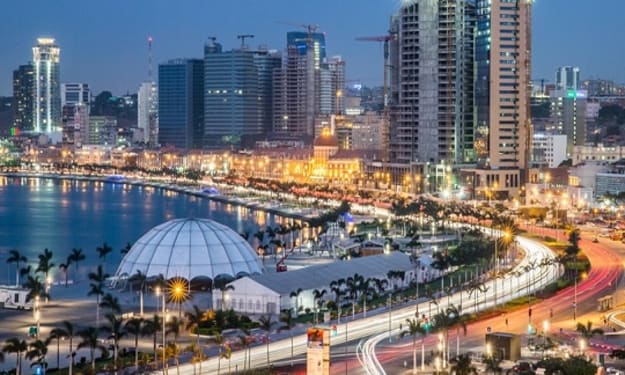Antigua and Barbuda: A Journey Through Time and Resilience
Antigua and Barbuda: A Tapestry of Heritage, Independence, and Tropical Splendor

Nestled in the heart of the Caribbean Sea, the twin-island nation of Antigua and Barbuda boasts a rich history that spans centuries. From indigenous peoples and colonial conquests to struggles for independence and modern nation-building, the story of Antigua and Barbuda is a testament to the resilience and diversity of its people.
Indigenous Peoples and Early Settlements:
The history of Antigua and Barbuda begins with the arrival of indigenous peoples, including the Arawak and Carib tribes, who inhabited the islands for thousands of years before the arrival of European explorers. These indigenous peoples lived off the land, fishing, farming, and trading with neighboring tribes.
In 1493, Christopher Columbus sighted the islands during his second voyage to the New World, naming them after a church in Spain. However, it wasn't until the early 17th century that the first European settlers established permanent colonies on the islands.
Colonial Era and Sugar Plantations:
In the 17th century, Antigua and Barbuda became part of the British Empire, with the first English settlers arriving on the islands in 1632. The British established large-scale sugar plantations, worked by African slaves brought to the islands to labor in the fields.
The sugar industry became the backbone of Antigua and Barbuda's economy, driving the islands' prosperity and attracting wealthy British planters and merchants. The islands became known as the "Gateway to the Caribbean" due to their strategic location and thriving trade networks.
Slavery and Abolition:
The transatlantic slave trade played a central role in Antigua and Barbuda's history, with tens of thousands of Africans forcibly transported to the islands to work on sugar plantations. Conditions for enslaved Africans were brutal, with harsh labor, poor living conditions, and widespread mistreatment.
Despite the hardships, enslaved Africans in Antigua and Barbuda resisted their oppressors through acts of rebellion, escape, and defiance. The abolitionist movement gained momentum in the late 18th and early 19th centuries, leading to the gradual emancipation of slaves throughout the British Empire.
Struggles for Independence:
In the 20th century, Antigua and Barbuda emerged as key players in the Caribbean nationalist movement, advocating for self-determination and independence from British colonial rule. The islands experienced a period of political awakening and activism, with grassroots movements demanding greater autonomy and democracy.
Antigua and Barbuda achieved independence from Britain on November 1, 1981, with the formation of a new government and the establishment of a parliamentary democracy. The islands' first Prime Minister, Vere Bird, played a pivotal role in guiding the nation through its transition to independence and nation-building.
Modern Nation-Building and Tourism:
Since gaining independence, Antigua and Barbuda have embarked on a path of modernization and economic diversification, with a focus on developing tourism, agriculture, and other sectors of the economy. The islands' pristine beaches, turquoise waters, and vibrant culture have made them a popular destination for travelers from around the world.
Tourism has become the main driver of Antigua and Barbuda's economy, generating revenue, creating jobs, and fueling infrastructure development. The islands' annual Carnival celebration, known as Antigua Carnival, attracts thousands of visitors each year with its colorful parades, music, and dance.
Challenges and Opportunities Ahead:
Despite its achievements, Antigua and Barbuda face several challenges in the 21st century, including climate change, environmental degradation, and economic inequality. The islands are vulnerable to hurricanes and rising sea levels, which threaten their infrastructure, economy, and way of life.
However, Antigua and Barbuda also possess immense potential and opportunities for growth and development. With its natural beauty, cultural heritage, and entrepreneurial spirit, the nation is well-positioned to navigate the complexities of the modern world and build a more prosperous and sustainable future for its citizens.
In conclusion, the history of Antigua and Barbuda is a story of resilience, resistance, and renewal. From its indigenous roots to its modern aspirations, the nation's journey reflects the diversity and dynamism of the Caribbean region. As Antigua and Barbuda look to the future, they do so with optimism and determination, guided by the principles of independence, democracy, and unity.
About the Creator
Enjoyed the story? Support the Creator.
Subscribe for free to receive all their stories in your feed. You could also pledge your support or give them a one-off tip, letting them know you appreciate their work.





Comments (1)
Hello, AI is permitted on Vocal. It is a Vocal policy that content created with AI is identified as such at the start of the story/article. Your article/story has many hallmarks of AI-assisted/generated content. You can find the details of the Vocal policy here: https://vocal.media/resources/an-update-from-vocal-on-ai-generated-content, Please amend your piece to be in compliance. If you are not a Vocal+ member you will need to contact Vocal here ([email protected]) and ask them to send your content back into your 'Drafts' where you can edit your story/article/poem. If you don’t correct this the content may be removed by Vocal and/or you may be deleted from the platform. This has been reported to Vocal.